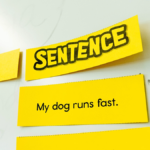Imagine the next time national 4th grade reading comprehension results of the National Assessment of Educational Progress (NAEP) were released, we already knew what they would say.
Don’t stop there. Now imagine we already knew — before NAEP reading scores were released — that the vast majority of our nation’s 4th graders were reading proficiently, establishing a firm ground for future academic achievement.
This doesn’t have to be the stuff of educator fairy tales.
We could turn these imaginings into reality, and we can start by establishing a new NAEP reading assessment for 1st graders.
Here’s why.
NAEP’s 4th Grade Reading Comprehension Results
Fourth grade is currently the earliest grade level assessed on what the National Assessment Governing Board calls the “Main NAEP,” and it’s been this way since the early 1990s. Since then, the content focus has remained the same as well— the NAEP reading assessment has measured 4th graders’ reading comprehension only.
Meanwhile, the bi-annual reading comprehension scores for 4th grade have continued to tell the same story.
We are failing our kids.
For the past three decades, at least ¼ of our nation’s 4th graders have been reading below the most basic levels of proficiency.
With the release of 2024 NAEP scores, we have seen those numbers grow even more troubling:
- 69 percent — more than 2 in 3 — of our nation’s 4th graders are reading below proficiency levels
- 2 in 5 of our 4th graders are reading below the most basic level
Not once in more than 30 years have we marked a year when even 50 percent of our 4th graders were reading at or above proficiency levels.
Let that sink in.
More than half of our nation’s kids can’t read proficiently.
Why are so many students reaching 4th grade — five whole years into the typical academic journey — unable to derive meaning from even the most basic text? Why have student scores remained low decade after decade?
We already know the answer, a fact that’s nearly as alarming as the scores themselves.
Why 4th Grade Reading Scores Aren’t Improving
A startling number of 4th graders aren’t proficient readers because they haven’t developed the foundational reading skills taught on the primary grade level.
We know this is what is required to read proficiently because of extensive research by cognitive scientists and neuroscientists who have discovered students cannot become proficient at reading comprehension without first developing a strong mastery of foundational reading skills.
Fully mastering this set of skills — which includes everything from being able to identify the 26 letters of the alphabet on sight to being able to associate printed letters with sounds — is what allows the brain to engage in the cognitive processes that fuel reading comprehension.
Specifically, we know this is the challenge at hand for a large percentage of our nation’s 4th graders because the very body behind the bi-annual national assessment has told us so.
NAEP conducted an Oral Reading Fluency (ORF) study in 2018, administering an assessment to a nationally representative sample of more than 1,800 4th graders from 180 public schools. That study determined that foundational reading skills were “underdeveloped” in the 4th graders performing below the NAEP Basic level of proficiency on the test.
Learn the history of the NAEP test, and see changes to the 2024 results.
The study’s authors called for the 4th grade test to be adapted so 4th graders’ oral reading fluency and foundational skills would be measured alongside their comprehension skills. That change will finally happen in 2026 when a new NAEP reading test framework is put into place.
The change is bound to give us even more data that affirms what we already know — a lot of kids are not reading well, and a lot of kids aren’t getting the help they need to read well.
An update to the 4th grade test certainly won’t help us reverse the trend of flagging scores.
To do that, we need to pinpoint when students first begin to need support with reading and do something about it.
The Case for a 1st Grade NAEP Assessment
What better way to start than by evaluating our nation’s students immediately following 1st grade, the grade during which the bulk of foundational reading skills instruction occurs?
If it’s foundational skills mastery that’s holding our 4th graders back, after all, shouldn’t we be assessing whether mastery is happening at the point at which we expect it to happen?
Waiting three years to find out whether or not students have actually developed the skills necessary to read is like waiting three years to fix a leaky pipe then proclaiming shock and appall that years of constantly flowing water has resulted in rotten, caved in floors.
This is not to say that the NAEP assessment should be charged with identifying and/or addressing students’ individual learning needs. That responsibility falls at the school level, and this is where it should remain.
Since its inception, however, the national assessment has been touted as a barometer for measuring student achievement and gauging performance changes over time.
Just as meteorologists turn to barometers to predict where storms are heading, an additional NAEP assessment in 1st grade would give us the hard data we need to prove, once and for all, that there’s just one way to stop the storm that’s heading for 4th grade.
Our kids should not have to spend even more years becoming increasingly frustrated and increasingly traumatized before an assessment tells the nation what they’ve known themselves since the 1st grade; they can’t read their word problems in math class, their primary sources in social studies, or their textbooks in science class because they still need someone to teach them how to read.
We must identify the cracks in the literal foundation of literacy instruction right where they begin to form — by assessing 1st graders’ mastery of foundational reading skills — and we must act quickly to repair that foundation. Our kids are counting on us.



